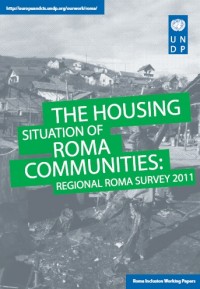Roma are more likely to live in poverty than non-Roma citizens. They have a higher risk of unemployment, stay in school for fewer years, and many live without access to drinking water, sanitation and electricity. Roma are more likely to suffer from chronic illness and have less access to health services. UNDP works with national partners to promote inclusion of Roma into economic, social, political and community life and in this publication they analyze the housing situation in Roma communities and the discrepancies regarding their non-Roma neighbors.
Latest news
- France begins eviction of 650 migrants from Calais camps
- Anti-eviction group creates crowdsourcing map for stories of displacement
- More foreclosures, more middle-aged suicides, study finds
- When it comes to hosting the Olympics, more cities are saying, ‘Hold that thought.’
- European leaders urged to end plight of 600,000 stateless people
Latest from the collection
- Raquel Rolnik’s mandate ends. Leilani Farha is the new rapporteur. – Newsletter #47
- Roots and Branches
- New Materials on Security of Tenure in Several Languages – Newsletter #46
- Guide: Guiding principles on security of tenure for the urban poor
- Address acute housing crisis – Special rapporteur on adequate housing
Learn more


